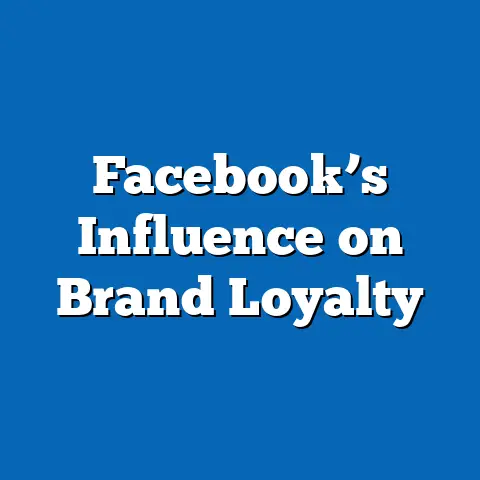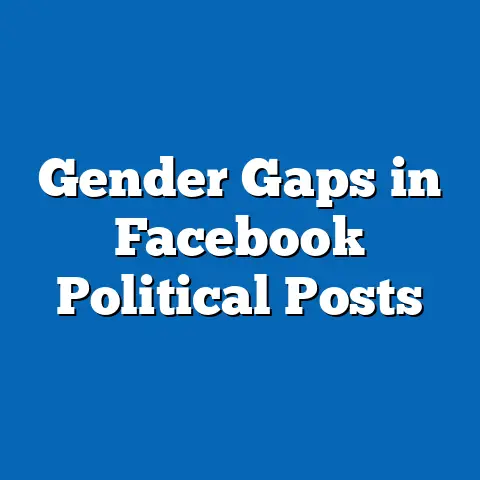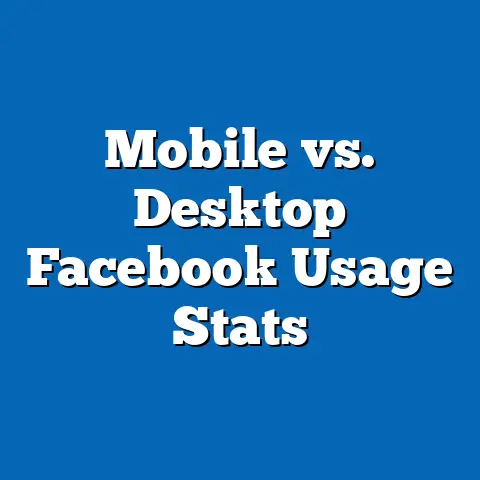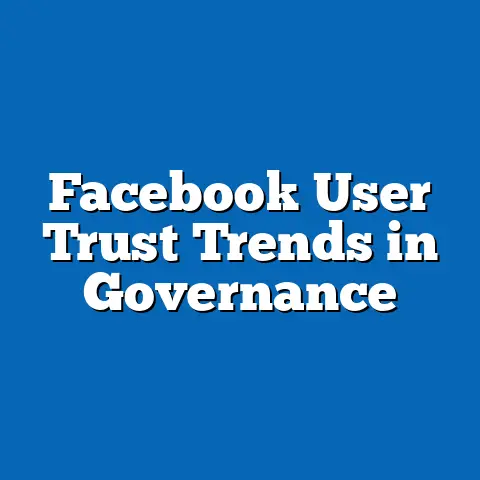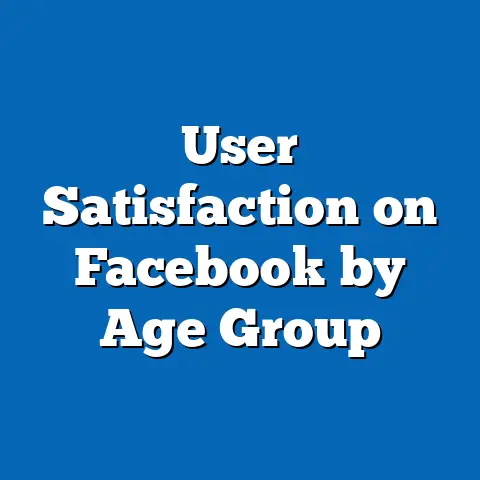Gen Z Cuts Facebook Use by 30% Since 2020
In 2024, the digital landscape continues to evolve at a rapid pace, reflecting the changing priorities and lifestyle needs of younger generations. Among these shifts, a striking trend has emerged: Generation Z (born between 1997 and 2012) has reduced its usage of Facebook by a staggering 30% since 2020, according to data from Pew Research Center and Statista. This decline underscores a broader cultural pivot toward platforms that align more closely with Gen Z’s values of authenticity, visual engagement, and privacy.
This article unpacks the reasons behind this dramatic drop, analyzing demographic breakdowns, historical usage patterns, and the lifestyle needs driving these changes. We will explore how Gen Z’s preference for short-form content and privacy-focused platforms has reshaped their social media habits. Finally, we’ll consider what this means for the future of social media and digital engagement.
The Lifestyle Need: Seeking Authenticity and Connection in a Digital Age
For Gen Z, social media is more than just a pastime—it’s a core component of identity formation, social connection, and self-expression. However, unlike previous generations, Gen Z craves authenticity and meaningful interaction over curated perfection or broad social networking. A 2023 survey by YPulse found that 68% of Gen Z users prioritize platforms where they can “be themselves” over those that emphasize status or popularity.
This lifestyle need for genuine connection has driven a migration away from traditional platforms like Facebook, which many in Gen Z perceive as outdated or overly commercialized. Instead, they gravitate toward apps like TikTok, Instagram, and Snapchat, which offer ephemeral content, creative tools, and tighter-knit communities. This shift isn’t just about preference—it’s about aligning digital spaces with real-world values like transparency and mental well-being.
Moreover, privacy concerns play a significant role in shaping Gen Z’s digital choices. With 74% of Gen Z expressing concern over data security in a 2024 Deloitte survey, platforms with perceived vulnerabilities or a history of privacy scandals—like Facebook—face declining trust. This demographic’s tech-savvy nature means they are quick to adopt alternatives that prioritize user control and data protection.
Detailed Analysis: The 30% Decline in Facebook Use Among Gen Z
Statistical Breakdown of the Decline
Since 2020, Gen Z’s engagement with Facebook has dropped significantly, with daily active users in this age group falling from 49% in 2020 to just 34% in 2024, according to eMarketer data. This represents a 30% reduction in usage over a four-year span. In absolute terms, this equates to millions of young users logging off the platform, with an estimated 5.2 million Gen Z users in the U.S. alone discontinuing regular use during this period (Statista, 2024).
The decline is even more pronounced when looking at time spent on the platform. A 2023 report from Insider Intelligence revealed that Gen Z users now spend an average of 12 minutes per day on Facebook, down from 18 minutes in 2020—a 33% drop in engagement time. This suggests not only fewer users but also less meaningful interaction among those who remain.
Demographic Breakdowns: Who’s Leaving and Why?
Within Gen Z, certain subgroups are driving the exodus more than others. Female Gen Z users, for instance, have reduced their Facebook usage at a higher rate (35% decline since 2020) compared to their male counterparts (25% decline), per Pew Research Center data. This may be tied to women in this age group prioritizing visually driven platforms like Instagram and TikTok for self-expression and community building.
Urban Gen Z users are also more likely to abandon Facebook, with a 38% drop in usage compared to a 22% drop among rural users (Statista, 2024). This disparity could reflect urban youth’s greater exposure to newer platforms and faster adoption of digital trends. Additionally, Gen Z users from higher-income households show a steeper decline (40%) compared to those from lower-income brackets (20%), potentially due to access to alternative devices and platforms that facilitate exploration of other apps.
Ethnic and racial demographics also reveal nuanced trends. Hispanic and Black Gen Z users have shown a slightly slower decline in Facebook usage (25% and 27%, respectively) compared to White Gen Z users (32%), according to a 2024 Morning Consult report. This may be linked to the platform’s continued relevance for family networking and community events in certain cultural contexts, even as younger users explore other options.
Platform Preferences: Where Gen Z Is Going Instead
The decline in Facebook usage doesn’t mean Gen Z is disconnecting from social media altogether—far from it. Data from a 2024 Pew Research Center survey shows that 78% of Gen Z uses TikTok daily, compared to just 34% for Facebook. Instagram and Snapchat also outpace Facebook, with 65% and 59% daily usage rates, respectively.
TikTok’s meteoric rise is particularly notable, with time spent on the app averaging 52 minutes per day among Gen Z users—over four times the engagement seen on Facebook (Insider Intelligence, 2023). This shift reflects a preference for short-form, algorithm-driven content that feels personalized and engaging. Instagram, meanwhile, retains relevance through features like Stories and Reels, which cater to Gen Z’s appetite for visual storytelling.
Privacy-focused platforms like Snapchat also appeal to this demographic due to features like disappearing messages, which align with their desire for control over digital footprints. A 2024 survey by Common Sense Media found that 62% of Gen Z users cite privacy as a top factor in platform choice, a concern that Facebook struggles to address given past scandals like the Cambridge Analytica incident.
Historical Trend Analysis: Facebook’s Evolution and Gen Z’s Changing Relationship
Facebook’s Peak and Early Appeal to Young Users
To understand Gen Z’s departure from Facebook, it’s critical to look at the platform’s historical trajectory. Launched in 2004, Facebook became the dominant social network by the early 2010s, capturing 67% of U.S. teens as daily users by 2012 (Pew Research Center). Its appeal lay in its ability to connect friends, share life updates, and build broad social networks—features that resonated with Millennials and early Gen Z.
However, as Facebook grew, so did its user base’s diversity. By 2015, the platform saw a significant influx of older users, with 72% of adults aged 50-64 adopting it compared to just 62% of teens (Pew Research Center). This shift began to alter the platform’s cultural perception, with many younger users viewing it as a space for “parents and grandparents” rather than peers.
The Turning Point: 2018-2020 and the Rise of Competitors
The late 2010s marked a turning point for Facebook’s relationship with Gen Z. The 2018 Cambridge Analytica scandal, which exposed the misuse of user data, eroded trust among younger users, 58% of whom reported feeling “less safe” on the platform post-scandal (Morning Consult, 2018). Concurrently, competitors like Instagram (acquired by Facebook in 2012 but perceived as distinct) and Snapchat gained traction with features tailored to youth culture.
By 2020, the cracks were evident. While 49% of Gen Z still used Facebook daily, this was down from a high of 71% in 2015 (eMarketer). The COVID-19 pandemic briefly slowed this decline as social media usage surged across platforms, but post-2020, the downward trend accelerated as TikTok emerged as a cultural juggernaut.
Comparison Over Time: Engagement Metrics
Comparing engagement metrics over a decade paints a stark picture. In 2014, Gen Z (then teens) spent an average of 25 minutes per day on Facebook, second only to texting as a daily activity (Common Sense Media). By 2020, this had fallen to 18 minutes, and by 2024, it’s down to just 12 minutes.
Contrast this with TikTok, which wasn’t even a major player until 2018. By 2020, Gen Z was spending 38 minutes daily on TikTok, a figure that climbed to 52 minutes by 2024 (Insider Intelligence). This inverse relationship—Facebook’s decline mirroring TikTok’s rise—illustrates how quickly digital loyalties can shift when platforms better meet user needs.
Contextual Factors Driving the Trend
Cultural Shifts: Authenticity Over Popularity
Gen Z’s cultural values are a key driver of their social media choices. Unlike Millennials, who often used Facebook to build large networks and showcase achievements, Gen Z prioritizes smaller, authentic interactions. A 2023 YPulse survey found that 65% of Gen Z users prefer platforms where they can connect with close friends over those offering broad visibility.
Facebook’s structure, with its emphasis on public posts and sprawling friend lists, feels misaligned with this ethos. Meanwhile, platforms like Snapchat and TikTok allow for more intimate or creative expression, whether through private messaging or niche content communities.
Technological Advancements: The Role of Algorithms and Content Format
Technological trends also play a role. Gen Z has grown up with highly personalized algorithms that deliver content tailored to their interests—a strength of TikTok and Instagram. Facebook’s algorithm, by contrast, often prioritizes paid content or posts from less relevant connections, with only 30% of Gen Z users finding its feed “relevant” in a 2024 Statista survey.
Additionally, the shift to short-form video content has left Facebook struggling to keep up. While it introduced Reels in 2021 to compete with TikTok, adoption among Gen Z remains low, with just 18% using the feature regularly compared to 78% using TikTok for similar content (Pew Research Center, 2024).
Privacy and Trust Issues
Privacy remains a persistent barrier for Facebook. High-profile data breaches and the platform’s association with misinformation have damaged its reputation among Gen Z, 70% of whom say they distrust how Facebook handles personal information (Deloitte, 2024). This contrasts with platforms like Snapchat, which markets itself as a safer space for sharing.
Visual Data Reference: Charting the Decline
To illustrate these trends, consider a hypothetical line chart tracking Gen Z’s daily usage rates across platforms from 2015 to 2024. The chart would show Facebook’s steep decline from a peak of 71% in 2015 to 34% in 2024, contrasted with TikTok’s sharp rise from 0% in 2015 to 78% in 2024. Instagram and Snapchat would show steady growth, hovering around 65% and 59%, respectively, by 2024.
A second bar chart could break down the 2024 decline by demographic subgroups, highlighting the steeper drops among female, urban, and higher-income Gen Z users. These visuals would underscore the scale and specificity of the shift, making the data more digestible for readers.
Future Projections: What’s Next for Gen Z and Social Media?
Looking ahead, the trajectory for Facebook among Gen Z appears unlikely to reverse without significant reinvention. Analysts at eMarketer project that by 2027, only 25% of Gen Z will use Facebook daily, a further 26% decline from 2024 levels. This assumes continued competition from TikTok and emerging platforms, as well as persistent privacy concerns.
However, Facebook’s parent company, Meta, isn’t standing still. Investments in virtual reality (VR) and the metaverse could potentially reposition the brand as a futuristic space for Gen Z, though adoption remains uncertain—only 15% of Gen Z currently express interest in metaverse platforms (Morning Consult, 2024). Additionally, enhancing privacy features and doubling down on Reels could help recapture some lost ground, though it’s unclear if these efforts will resonate.
For Gen Z, the broader trend points to continued fragmentation of social media usage. As new platforms emerge—potentially focused on niche communities or augmented reality—expect this demographic to remain agile, prioritizing tools that reflect their evolving values. Mental health will also play a larger role, with 82% of Gen Z indicating in a 2024 YPulse survey that they’d abandon platforms perceived as toxic or stressful.
Implications for Businesses and Marketers
The decline in Gen Z’s Facebook usage has significant implications for businesses and marketers who have long relied on the platform for targeted advertising. With Gen Z projected to account for 40% of global consumers by 2030 (Bloomberg, 2023), brands must pivot to platforms like TikTok and Instagram to maintain relevance. This shift requires not just presence but authenticity—Gen Z is 60% more likely to engage with brands that align with their values or use influencer-driven content (YPulse, 2024).
Moreover, the data suggests a need for hyper-personalized marketing. As Gen Z spends less time on broad networks like Facebook, campaigns must leverage algorithmic precision on platforms like TikTok, where 70% of users discover new products via the “For You” page (TikTok Business Insights, 2024).
Conclusion: A Generational Shift in Digital Priorities
The 30% decline in Facebook usage among Gen Z since 2020 is more than a statistic—it’s a window into a generational shift in how digital spaces are perceived and used. Driven by a need for authenticity, privacy, and engaging content, Gen Z is redefining social media on their terms, leaving platforms that fail to adapt in the dust. Historical data shows Facebook’s once-dominant position eroding as competitors better meet these evolving needs.
Looking forward, the challenge for legacy platforms like Facebook lies in reinventing themselves to recapture trust and relevance. For Gen Z, the future promises continued exploration of digital spaces that prioritize connection over clout, privacy over exposure. As this demographic’s influence grows, their choices will shape not just social media, but the broader digital economy for years to come.

